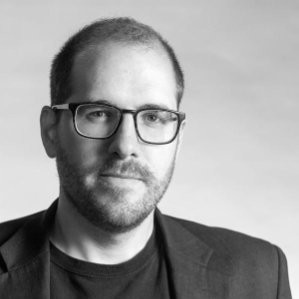What's Our Vision of Digital Equity?
Wednesday, October 5, 2022
Digital Beat
What's Our Vision of Digital Equity?


This is Digital Inclusion Week 2022, a time to raise awareness of solutions addressing home internet access, personal devices, and local technology training and support programs. The theme this year, Turning Our Moment into Movement, is so apt because, as expansive as our efforts are, it will take a sustained effort to close our digital divides. The Benton Institute for Broadband & Society is committed to working alongside the hundreds of other organizations across the United States that are advancing digital equity.
As states, tribes and territories begin planning to use Infrastructure Investment and Jobs Act support to connect everyone via high-speed internet access, one overarching requirement is that they each write their vision of digital equity. The exercise is a powerful opportunity to think some years down the line and envision how our lives, communities, economy, and society can be transformed through successful implementation of the Act.
In recognition of the work states, tribes and territories have before them—as well as the role communities must play to inform their plans—the Benton Institute is launching a national dialogue to engage our community of advocates to contribute to a publication that outlines a collective vision of digital equity.
As a first phase of this process, we are inviting the digital equity community to join us on October 11th at 11am ET (REGISTRATION LINK) for a conversation and to provide input in a short, 10-question survey: https://www.menti.com/qj1oj3dij4
Please join us in this process of articulating a collective vision, or perhaps visions, of digital equity that can be additive to the digital equity work many of you are already undertaking by completing the survey and, if you are interested in engaging even more directly, by attending our October 11 online event.
Over the past 40 years, the Benton Institute has served as a critical thought leader, providing timely, expert insight and recommendations that support the expansion of broadband, connect stakeholders, inform policymakers, and elevate best practices. The approach we are taking here is, however, a somewhat new exercise for us. We are not researching how things are, nor are we highlighting prudent approaches or best practices. Instead, we are working collectively to outline a vision for what could be and should be.
Andrew Coy of Initial Velocity is helping to direct our work on this project. Andrew is a passionate problem-solver with experience at the intersection of nonprofit, government, and technology. As a White House advisor from 2015 to 2017, Andrew led the President’s Nation of Makers Initiative, connecting and convening communities to help grow the maker movement, coordinating innovation in the Federal government, advocating for more making in K-12 & Higher Ed, and leading efforts to increase youth voice in science and technology through the President’s Kid Science Advisors campaign. Andrew served as co-chair of the first ever Maker Interagency Working Group under the National Science and Technology Council’s Committee on Technology. He currently serves as the executive director of the Digital Harbor Foundation in Baltimore.
Digital equity visions must go beyond wires. Yes, as Congress finds, access to affordable, reliable, high-speed broadband is essential to full participation in modern life in the United States. But adoption, affordability, devices, and use are just as important to unlocking the potential of broadband to improve economic competitiveness, essential public services, health care, education, and so much more.
Access for all at 25/3 or even 100/20 by a date certain is not a digital equity vision. True vision gives direction. It sharpens our focus and helps turn goals and purposes into reality.
There is so much crucial digital inclusion work happening now—and much more will be supported by the Infrastructure Investment and Jobs Act and state broadband programs.
The exercise we’re asking you to help us with is an articulation of how truly universal broadband can transform our society, our economy, and our democracy.
Many of you are doing the leading on how to do the work. We’re asking you to help sharpen the focus of what we’re all aiming for.
How do we ensure that not just wires reach communities of color, low-income and rural areas—how do we ensure opportunity reaches them, too?
Obviously, we must hear from many voices. Including yours.
Adrianne B. Furniss is the Executive Director of the Benton Institute for Broadband & Society.
Andrew Coy is the founder of Initial Velocity and executive director of the Digital Harbor Foundation in Baltimore, Maryland.
The Benton Institute for Broadband & Society is a non-profit organization dedicated to ensuring that all people in the U.S. have access to competitive, High-Performance Broadband regardless of where they live or who they are. We believe communication policy - rooted in the values of access, equity, and diversity - has the power to deliver new opportunities and strengthen communities.
© Benton Institute for Broadband & Society 2022. Redistribution of this email publication - both internally and externally - is encouraged if it includes this copyright statement.
For subscribe/unsubscribe info, please email headlinesATbentonDOTorg






